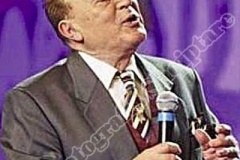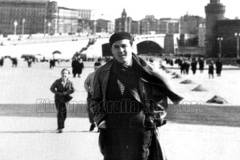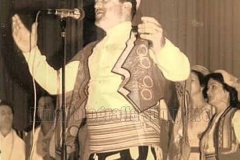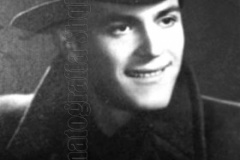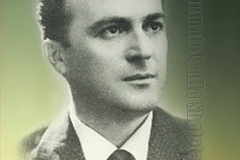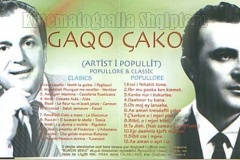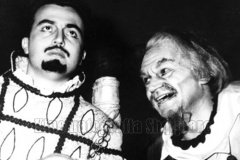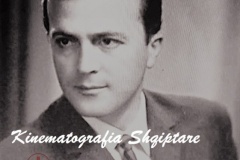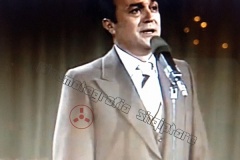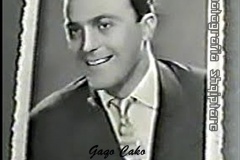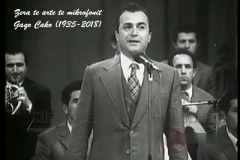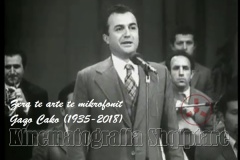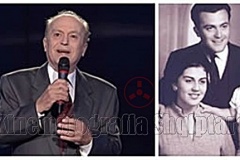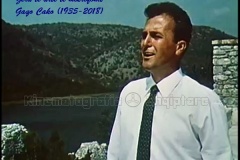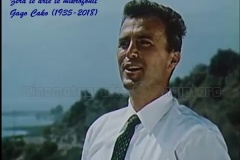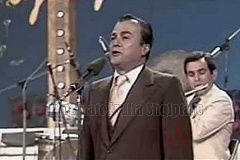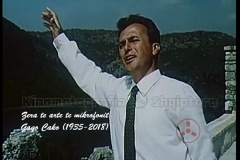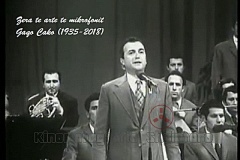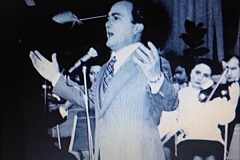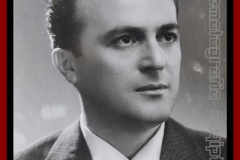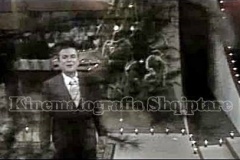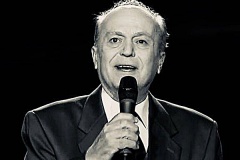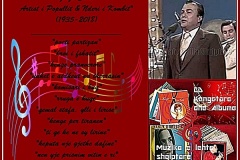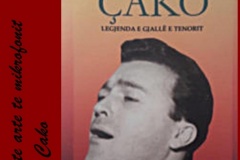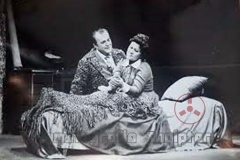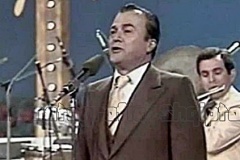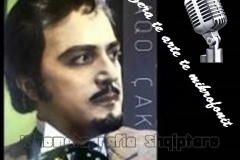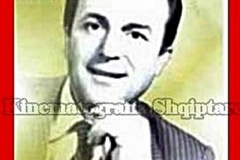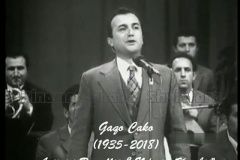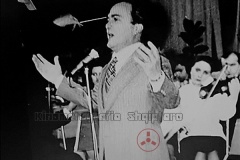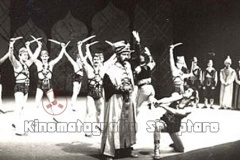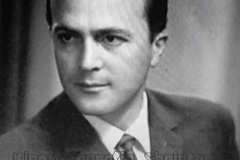Gaço Çako (1935-2018)
People’s Artist & Nation’s Honor
Born on January 24, 1935, he is a singer who belongs to the golden generation of Albanian music. Holds the title “People’s Artist”. The legendary tenor, Gaqo Çako, is among the great names of the Pantheon of Albanian music such as Avni Mula, Ibrahim Tukici, Ramiz Kovaçi, Mentor Xhemali, etc.
In the years 1957 – 1961 studied at the “Tchaikovsky” conservatory in Moscow under the direction of teacher Anna Soloviova. Cako, just a student, who sought to absorb every detail related to music and art, the handsome young Albanian would stand out for his dedication and talent from his professors.
The director of the Conservatory, Aleksandër Vasilevich Svjeshnikov, would see in the voice of the Albanian boy, the main character in Puccini’s opera, “La boheme”, that of Rodolfo.
In 1957, Gaqo Çako would perform on the Russian stage, a performance that would always remain unforgettable. Then came other successes in the operas “Eugene Onegin” (Tchaikovsky) and “The Tsar’s Fiancee” (Rimskij-Korsakov), which were performed in the opera studios of the Music College, or in the theater near the “Vaganova” Conservatory.  For the young tenor, those were golden times, where the whole conservatory talked about the talent and success of a boy from Albania. For these roles he was paid 50 rubles, which was enough to make the life of a student in Moscow in those years…
For the young tenor, those were golden times, where the whole conservatory talked about the talent and success of a boy from Albania. For these roles he was paid 50 rubles, which was enough to make the life of a student in Moscow in those years…
As he enjoyed the endless applause after the performance of the opera “La Boheme”, Gaqo Çako could not think that his time in Conservatory “Tchaikovsky” would be short, and that he would not be able to graduate in Moscow (he completed his studies in Tirana).
The breakdown of relations between Albania and the Soviet Union would forever cut off contacts with this beautiful city. Tirana would be the station where he would stop, for him to become a star of opera music in the country.
The first role for the Albanian public would be the “First Committee”, from “Lulja e Kujtimit”, on November 5, 1961. Other roles would follow after that, such as that of Agron from the opera “Heroina” by Vangjo Nova, which was staged in 1967, the role of Besnik from the operetta “Women’s Brigade” by Llazar Morcka in 1969, Shpendi from “Përtej mjegullës” by Pjetër Gaci in 1971, Doda in the opera “Mrika” by Prenk Jakovo in 1975, until the role of Galan Lugapari in the opera “Borana” by Avni Mula in 1984.

Fate would be on the side of the young tenor, since during the times of changes in Albanian culture, influenced by the Chinese Revolution, he was studying in Italy together with his colleague Ramiz Kovaçi.
Quite well-known in the Italian scenes, where he graduated from the conservatory of Santa Cecilia (in the same generation as the Italian singer Claudio Vila). His voice has become an object of pleasure wherever he is heard and shown, in the opera, on television, on the radio, in large or small concert halls.
For the great artist Gaqo Cako, we can mention recordings of 34 foreign arias, sung in the original language and in Albanian, as well as 13 Albanian civic lyric songs (not including other songs and duets, also recorded in the Radio studio);
All successes, of course, have a name, and the tenor dedicates this to his wife Luiza, who has been the inspiration in his life. To write about the life of the artist Gaqo Çako, it cannot be just a story about a life. It is a story about an era and about those people who established the institution of opera in Albania and created a tradition, despite the difficult conditions of the time. Čako was the only Opera lyric singer who participated and sang in Radio festivals, which included singers with their natural voice (or also singers with an impossed or semi-imposed voice, but not genuine operatic lyric singers.
Each of to the lyric singers of the Opera, but also to other musicians, this acceptance of Gaqo to approach the genre of ‘light’ song, from the beginning of his career, seemed like a ‘deviation’ from the pure line of lyric singing. He created the portrait of a serious opera singer near the stage of the Opera and Ballet Theater and alongside this profile he appeared (actually begged to appear) without hesitation on television screens whenever he was asked to do so, as well as recorded his voice in the Radio Tirana studio for the radio broadcasts. Such festival songs as “Këputa nje gjethe dafine” and “Rjedh ne kengë e ligjërime” gave him fame.
Gaqo was the first to start recording foreign operatic music at a time when in Albania such a thing was not practiced by lyric singers nor was it recommended by superiors, as it was considered a musical literature that it could contain ‘foreign influences’, harmful to the ideology of the time.
Most of Gaqo’s recordings belong to 1981, but others were made step by step until 1990. For the last time, Gaqo Çako went on stage on the occasion of the 100th anniversary of the birth of the well-known soprano Tefta Tashko Koço. On the stage where almost half a century ago he had started his career (1961), he sang a traditional Korça civic song “As aman moj lule” a duet with Teuta Koço in the song “As aman trendafile” and another duet, again with Teuta, from “The Merry Widow” by the composer Franz Lehár.
He passed away at the age of 83 on August 1, 2018.
For his artistic merits, he was honored with the titles “People’s Artist” and “Nation’s Honor”.
________________
Albanian Cinematography in activity since 2013
Reference: Adapted from the book written by Eno Koco “Gaqo Çako, the living legend of the tenor” and adapted for the site in December 2015. Photos are contribution of site administrators.
Discover more from Albanian Cinematography - Sport
Subscribe to get the latest posts sent to your email.

